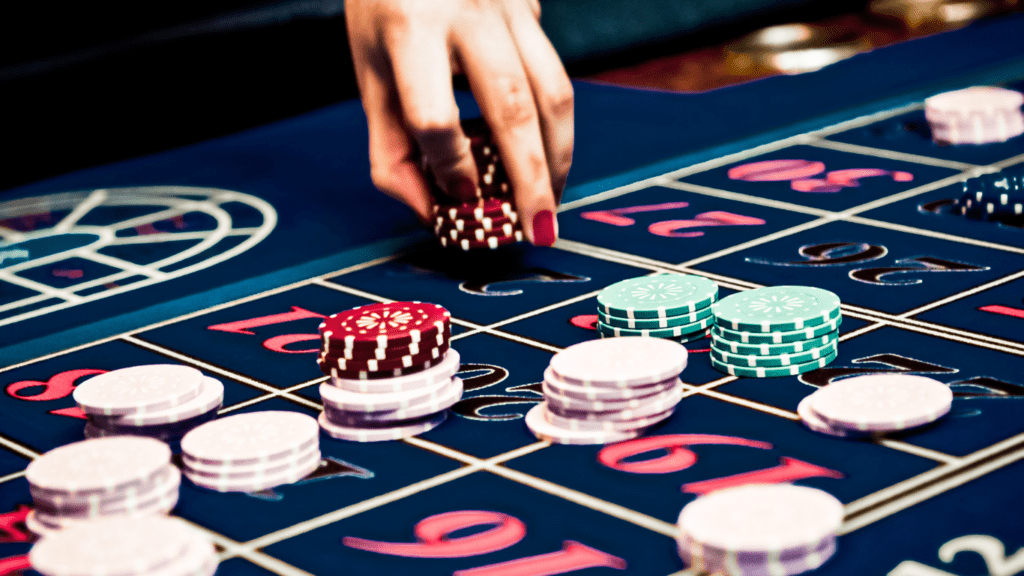What the Gambler’s Fallacy Really Is
The gambler’s fallacy is the idea that random events are influenced by past outcomes that if something happens repeatedly, the opposite result is “due.” In reality, most betting events (like coin tosses, roulette spins, or card draws from a reshuffled deck) are independent. That means each outcome has no memory. Past results don’t shape what comes next.
Still, people cling to patterns. You’ve probably heard someone say, “Red has hit five times black has to be next.” Or “This team can’t keep winning forever.” It feels logical, but it’s not. That mindset leads players to expect balance in the short term, even in systems built on chance. They misread streaks as signals, not the noise they truly are.
In sports betting, a bettor might put money on a losing team, convinced they’re “overdue” for a win. In roulette, a string of reds convinces players black is inevitable even though each spin is still 50/50 (minus the house edge). With cards, gamblers might think because no aces have shown up yet, one must be coming while forgetting the deck was just reshuffled.
The core of it: randomness doesn’t balance out in the short term. Thinking otherwise costs people money. Understanding this is step one in becoming a smarter bettor.
How This Fallacy Messes With Your Odds
The heart of the gambler’s fallacy is a simple but dangerous lie: that past outcomes somehow change the odds of future ones. If a roulette wheel lands on red five times in a row, it’s tempting to think black is ‘due.’ But each spin is a clean slate no memory, no karma, no cosmic fairness. This kind of thinking turns probability on its head and leads smart people to dumb bets.
The real cost of this mindset isn’t just theoretical it hits wallets. Chasing losses because you think a win must be around the corner is how bankrolls vanish. That one more roll, that last parlay, that aggressive double down when logic says stop these are rooted in overconfidence, not strategy. gamblers stuck in this loop often confuse gut feeling with actual edge.
So why do we fall for it? Because our brains are wired for patterns and control. We want to believe there’s order in randomness. It’s comforting to think we can forecast the unpredictable, or ride hot streaks like waves. But this bias toward finding meaning in noise doesn’t make us better bettors. It makes us riskier ones.
Recognizing this flawed logic is the first step toward betting like a pro. You’re not fighting the game. You’re fighting your own instincts.
Recognizing & Rejecting the Trap

The gambler’s fallacy slips into your thinking quietly. It’s the voice that says, “This team’s lost five in a row they’re due,” or “Black just hit three times red has to be next.” If you catch yourself predicting outcomes based on streaks rather than stats, that’s the red flag. Awareness is the first line of defense. Start by questioning the logic behind your hunches: Is it based on math, or just a gut feeling trying to make sense of randomness?
Discipline matters more than bravado. Set rules before you place a bet things like bankroll limits, break intervals, and pre defined betting systems. Stick to them even when the temptation to ‘win back’ hits hard. Emotional bets usually feel good in the moment and terrible after.
Knowing real probability matters. Just because something hasn’t happened in a while doesn’t make it more likely to occur now. Each hand, spin, or play is its own event. Understand the odds, map them to your bets, and ignore the urge to predict patterns in noise. The game isn’t personal it’s math. Stay on the numbers. That’s where the edge lives.
Smarter Strategies Backed by Logic
Smart betting isn’t about instincts, vibes, or riding hot streaks. It’s about numbers specifically, using solid data and statistical reasoning to guide every wager. Start by looking at historical performance, form, head to head matchups, and conditions. Build models, or borrow some. The goal is to ground your decision in something more concrete than a gut feeling.
Next: bet sizing. That’s where discipline matters most. Bet based on risk tolerance, not superstition or the illusion of recovery. If you go on tilt chasing a loss or worse, go all in because you think a win is “due” you’re walking right into the fallacy. Smarter bettors stick to strategies like the Kelly Criterion or flat betting to manage risk over time.
And finally, know when to walk away. This isn’t about pride or proving a point. If your edge is gone or the data doesn’t support action, sit it out. On the flip side, if your model shows value and bankroll allows, doubling down can be rational but only if the logic holds.
For a full breakdown of the myths and math, dig deeper with our complete gambler’s fallacy guide.
Bottom Line Gameplan
Trust the Math Not Your Gut
When it comes to betting, your instincts might feel sharp in the moment but emotions are notoriously unreliable predictors of outcomes. Long term success doesn’t come from hunches or hot streaks; it’s built on an understanding of probability, value, and consistency.
Gut feelings are often tied to recent wins or losses
Emotional bets can skew your risk tolerance
Math doesn’t care about ‘due wins’ it deals in probabilities
Your Real Edge: Staying Rational
While others chase patterns that don’t exist or fall into the trap of ‘streak thinking,’ your advantage lies in staying level headed. Gamblers who manage to sidestep emotional bias typically manage their funds better and make clearer decisions, especially under pressure.
Avoid chasing losses or ‘making up’ streaks
Stick to your pre planned strategy, even after a win or loss
Use logic to evaluate bets not superstition or crowd behavior
Steady Beats Flashy Every Time
Flashy wins make headlines, but it’s the disciplined bettors who stay profitable over time. Stick to what’s proven: clear thinking, slow gains, and consistent decision making.
Focus on value over excitement
Analyze each bet as a standalone, not part of a streak
Let go of ‘lucky hands’ trust the numbers every time
For more on mastering your mindset and betting with clarity, check out the full Gambler’s Fallacy Guide.


 Eriker Welschesters
Cryptocurrency Gambling Advisor & Blockchain Expert
Eriker Welschesters is Pro Gamble Genius's resident cryptocurrency gambling expert, offering a forward-thinking perspective on the integration of blockchain technology with online gambling. Eriker has spent years studying the intersections of finance, technology, and gambling, and his insights have made him a leading authority in the world of cryptocurrency betting. His work focuses on educating readers about the benefits, risks, and practical applications of digital currency in online casinos, including topics like secure transaction methods, anonymity, and the role of blockchain in fair gaming practices. Eriker’s articles help both crypto-savvy readers and newcomers to safely navigate the fast-growing world of cryptocurrency gambling. Dedicated to ensuring that Pro Gamble Genius remains at the forefront of this trend, Eriker continuously explores new developments in blockchain and crypto to keep readers informed and prepared to make the most of their gambling experiences in a digital age.
Eriker Welschesters
Cryptocurrency Gambling Advisor & Blockchain Expert
Eriker Welschesters is Pro Gamble Genius's resident cryptocurrency gambling expert, offering a forward-thinking perspective on the integration of blockchain technology with online gambling. Eriker has spent years studying the intersections of finance, technology, and gambling, and his insights have made him a leading authority in the world of cryptocurrency betting. His work focuses on educating readers about the benefits, risks, and practical applications of digital currency in online casinos, including topics like secure transaction methods, anonymity, and the role of blockchain in fair gaming practices. Eriker’s articles help both crypto-savvy readers and newcomers to safely navigate the fast-growing world of cryptocurrency gambling. Dedicated to ensuring that Pro Gamble Genius remains at the forefront of this trend, Eriker continuously explores new developments in blockchain and crypto to keep readers informed and prepared to make the most of their gambling experiences in a digital age.
